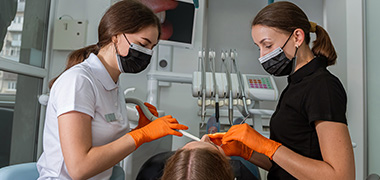
AI Occupational Exposure score unavailable For more insight, research the specific tasks and skills required for the role.
Explore all careersA Treatment Coordinator creates dental treatment plans, discusses costs, insurance, and payment options, ensuring clear communication and detail.
Get qualified to work as a Treatment Coordinator with a course recognised across Australia. Speak to a training provider to learn more.
In Australia, a full time Treatment Coordinator generally earns $1,750 per week ($91,000 annual salary) before tax. This is a median figure for full-time employees and should be considered a guide only. As you gain more experience you can expect a potentially higher salary than people who are new to the industry.
 Courses.com.au Team
Courses.com.au Team
This industry should experience moderate growth in employment numbers in coming years. There are currently 29,200 people working in this field in Australia and many of them specialise as a Treatment Coordinator. Treatment Coordinators may find work across all regions of Australia.
Source: Australian Government Labour Market Insights
 Courses.com.au Team
Courses.com.au Team
If a career as a Treatment Coordinator interests you, consider enrolling in a Certificate III in Dental Assisting. This course will give you the skills to work with dental professionals during procedures. You’ll learn to maintain high standards of infection control, work in health and community services and assist in dental radiography.
 Courses.com.au Team
Courses.com.au Team



A Treatment Coordinator prepares treatment plans and costs for dental procedures. You’ll work closely with dental professionals and spend time discussing treatment options with patients. Treatment Coordinators might discuss costs and provide information on insurance plans and payment options. You might prepare paperwork and process health fund claims.
Treatment Coordinators should have excellent interpersonal skills and be able to communicate clearly with colleagues and patients. It’s important you can assess individual patient circumstances and understand their concerns. Treatment Coordinators must be able to follow correct procedures and have keen attention to detail.